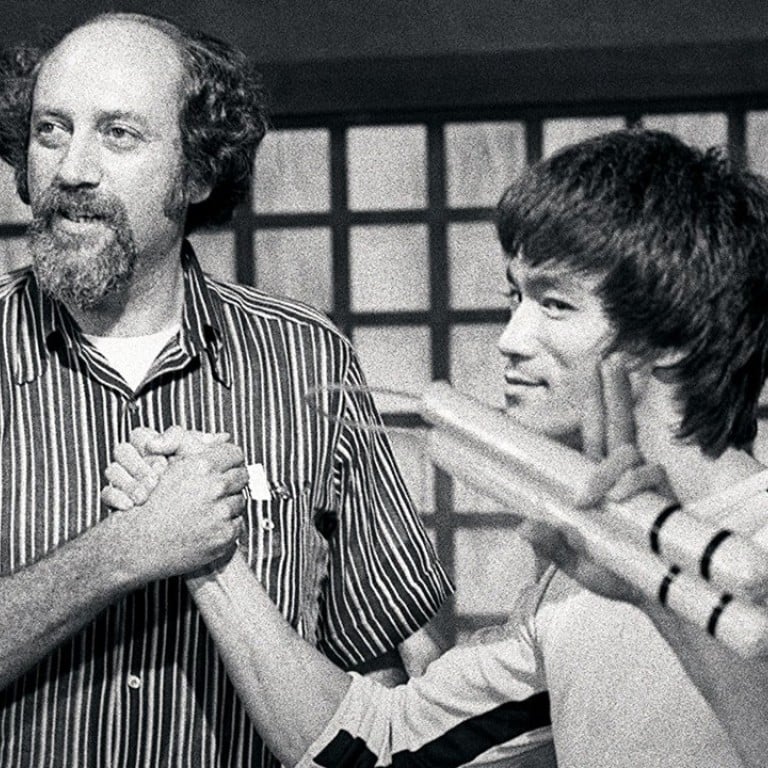
Bruce Lee: how his Chinese race counted against him in Hollywood with its history of negative Asian stereotypes in films
The American film industry had long been racist. Lee thought he could change that, but studio bosses doubted US audiences would accept a non-American hero. The worldwide success of Enter the Dragon came too late
In a special series commemorating the 45th anniversary of Bruce Lee’s death on July 20, 1973, we aim to set the facts straight – as well as exploring some little known trivia – about the life of the martial arts legend.
Asians have suffered from racial discrimination in Hollywood since the early days of the movies.
As recently as 2016, the Bruce Lee drama Birth of the Dragon was criticised for making Lee a supporting character in his own story, which was told from the perspective of a Caucasian character. The film was subsequently recut to feature Lee as the lead character.
Off screen, an internet storm has been raging about racist attitudes leading to the omission of Daniel Wu’s martial arts action show Into the Badlands from the outstanding stunt coordination category of the Emmys.
So did Bruce Lee’s Hollywood career suffer because he was Chinese?
The philosophy behind Bruce Lee’s jeet kune do martial arts style
According to the martial arts superstar himself, it did. In a Canadian television interview, which took place just after Lee had lost the starring role in the US television series Kung Fu to the Caucasian actor David Carradine, and after his projected US series The Warrior had been written off by the studio, Lee said he had been denied opportunities because he was Chinese.
Asked a question about whether industry executives had discussed whether the US audience would accept a non-American hero, Lee responded: “Such [a] question has been raised, and it is being discussed. And that is why The Warrior is not going to be on. Unfortunately, such [a] thing [as racism] does exist in this world, in certain parts of the country … where they think, business-wise, it’s a risk.”
In an interview with Hong Kong’s The Sunday-Post Herald in November 1971, Lee was more specific: “What’s holding things up now is that a lot of people are sitting around in Hollywood trying to decide if the American television audience is ready for an oriental hero. We could get some really peculiar reactions from the Deep South.”

Racist attitudes to Asian performers, and racial stereotyping in films, had existed in American cinema since the early 1900s. The practice of “yellowface” – Caucasian actors being made up to look Asian – was particularly troubling.
The most notable example of this is 1937’s The Good Earth, a film adaptation of Pearl S. Buck’s novel that featured Caucasians Paul Muni and Luise Rainer in yellowface as the film’s Chinese hero and heroine. The Good Earthis doubly objectionable because Rainer beat Anna May Wong, the only Chinese star in early Hollywood, for the lead role of O-Lan.
On the screen, Chinese characters were portrayed solely in a negative light in American movies, either as evil Fu Manchu types, or as dragon ladies and prostitutes.
Lee had hoped to change that with the television series The Warrior – which was his own project – and Kung Fu, for which he was considered for the lead role. Lee had always tried to turn down roles which portrayed Chinese in a negative light – he refused to wear a queue, for instance, pointing out that it was derogatory practice.

The actor also fought hard for more lines and equal standing for his character, Kato, in his debut TV show The Green Hornet, and was somewhat successful, even though he was unknowingly paid less than his American colleagues.
Origin of classic Bruce Lee quote from US television series explained
Lee wanted to become the first international Chinese film star, and his rejection by the American television companies, and the success of The Big Boss in Asia, led him to temporarily refocus his energy on Hong Kong.
We will never know if the worldwide success of Enter the Dragon, which was released after his death, would have finally allowed Lee to succeed in his aim.
Want more articles like this? Follow SCMP Film on Facebook











